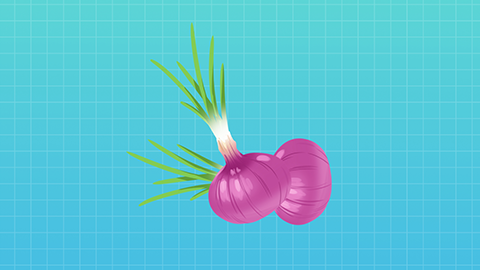Can you still eat an onion that has sprouted?
Generally speaking, whether sprouted onions are edible depends on the specific condition of the onion. If any discomfort occurs, it is recommended to seek medical attention promptly. Detailed analysis is as follows:

If the onion has only slightly sprouted, with intact skin, no damage or mold spots, and when peeled the inner flesh is firm, not mushy, and without an off odor, it can generally be consumed after removing the sprouted portion and a small amount of surrounding shriveled tissue. In such cases, some nutrients have shifted to the sprout, which may slightly compromise the taste and sweetness, but no harmful substances are produced. After thorough washing, the onion can be normally used for stir-frying or stewing, and remains safe for consumption.
If the onion has sprouted severely, with thick sprouts, wrinkled or damaged skin, or if the interior flesh is soft, slimy, moldy, or emits an unpleasant odor upon peeling, then it should not be eaten. Severely sprouted onions may easily breed bacteria or mold, potentially producing substances harmful to health. Even after removing the sprouted portion, harmful substances may have spread to the remaining flesh, and consumption may cause gastrointestinal discomfort and affect health.
When purchasing onions, prioritize fresh ones with smooth, firm skin and no signs of sprouting. During storage, keep them in a cool, dry, and well-ventilated place, avoiding moisture and direct sunlight to reduce the likelihood of sprouting and spoilage. Carefully inspect the onion's condition before consumption, and do not eat it if its safety is uncertain, to ensure food safety.




